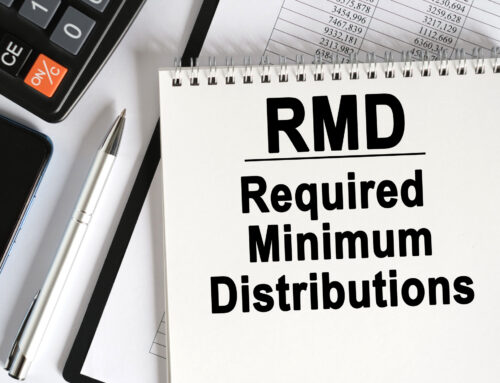
Retirement is a stage in life that many look forward to. However, it comes with its own set of financial challenges, among them being the handling of taxes. Contrary to popular belief, tax responsibilities do not necessarily cease once you retire. Your tax liability may increase if your retirement income sources are not tax-efficient. Understanding how to manage taxes during this period can go a long way in helping you maintain a suitable standard of living.
First, you must be aware of taxable income from retirement strategies you can access during retirement. These sources of retirement income include pensions, annuities, distributions from retirement accounts such as 401(k)s and traditional IRAs, dividends, interest, capital gains from investments, and even part of your Social Security benefits. Knowing this can help you plan and budget for potential tax liabilities in retirement. Here are some ways to help you manage taxes on these sources of retirement income.
Diversify income streams
One effective strategy you can adopt is to diversify your income sources. Not all types of retirement income are taxed equally. For example, Roth IRA and Roth 401(k) withdrawals are typically tax-free in retirement. Thus, having a mix of taxable and tax-free retirement income sources can smooth out your tax liabilities.
Time withdrawals
Another essential aspect to consider is the timing of your withdrawals from your retirement accounts. Required Minimum Distributions (RMDs) begin at 73 for most retirement accounts. Failure to take these distributions can result in a hefty tax penalty. Therefore, planning your withdrawals wisely is essential to avoid unnecessary tax implications.
State taxes
One must consider the potential impact of state taxes. Several states in the U.S. do not tax Social Security benefits or retirement account withdrawals. Other states do not have state income tax. Therefore, the state where you choose to live in retirement could significantly influence your overall tax liability.
Tax-loss harvesting
A strategic approach to managing your investments, called tax-loss harvesting, can also help mitigate your tax burden in retirement. For instance, selling assets that have declined in value can offset taxes on capital gains from selling appreciated investments.
Estate planning
One often overlooked aspect of retirement planning is the role of estate planning. Leaving a tax-efficient estate to your heirs can also be a part of your retirement tax strategy. For example, bequeathing assets in a Roth IRA, which allows tax-free withdrawals for beneficiaries, makes more sense than leaving heavily taxed assets.
Hire financial and tax professionals.
To navigate the complexities of taxes in retirement, you may find it beneficial to enlist the services of financial and tax professionals. These professionals can provide personalized guidance and strategies tailored to your circumstances, helping you mitigate your tax liabilities in retirement.
In conclusion, handling taxes in retirement involves a careful and strategic approach. Understanding the tax implications of your retirement income sources, strategically timing your withdrawals, considering the impact of state taxes, managing your investments, and developing a tax-efficient estate plan are all crucial to ensuring a smooth and financially independent retirement. With careful planning and professional guidance, you can efficiently handle taxes in retirement and enjoy the fruits of your labor without unnecessary tax burdens.
https://www.nerdwallet.com/article/taxes/tax-loss-harvesting#:~:text=What%20is%20tax%2Dloss%20harvesting,of%20investments%20for%20a%20profit.
https://www.morningstar.com/personal-finance/how-retirees-can-avoid-tax-torpedo
This information is provided as general information and is not intended to be specific financial guidance. Before you make any decisions regarding your personal financial situation, you should consult a financial or tax professional to discuss your individual circumstances and objectives. The sources used to prepare this material are believed to be true, accurate and reliable, but are not guaranteed. SWG3635756-0624b









